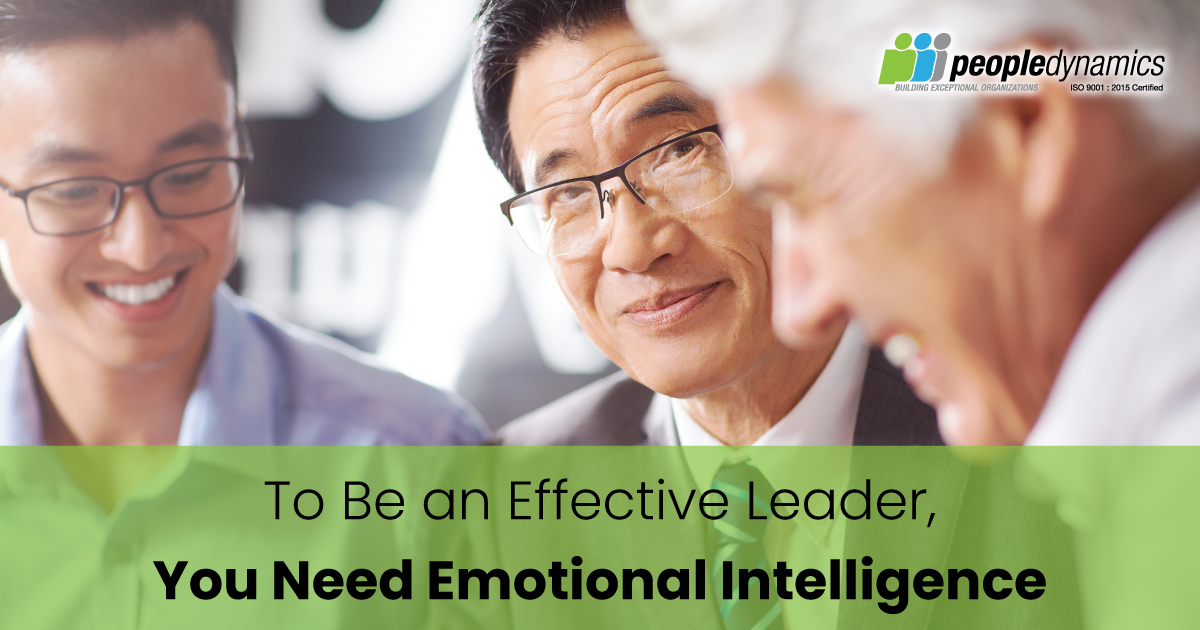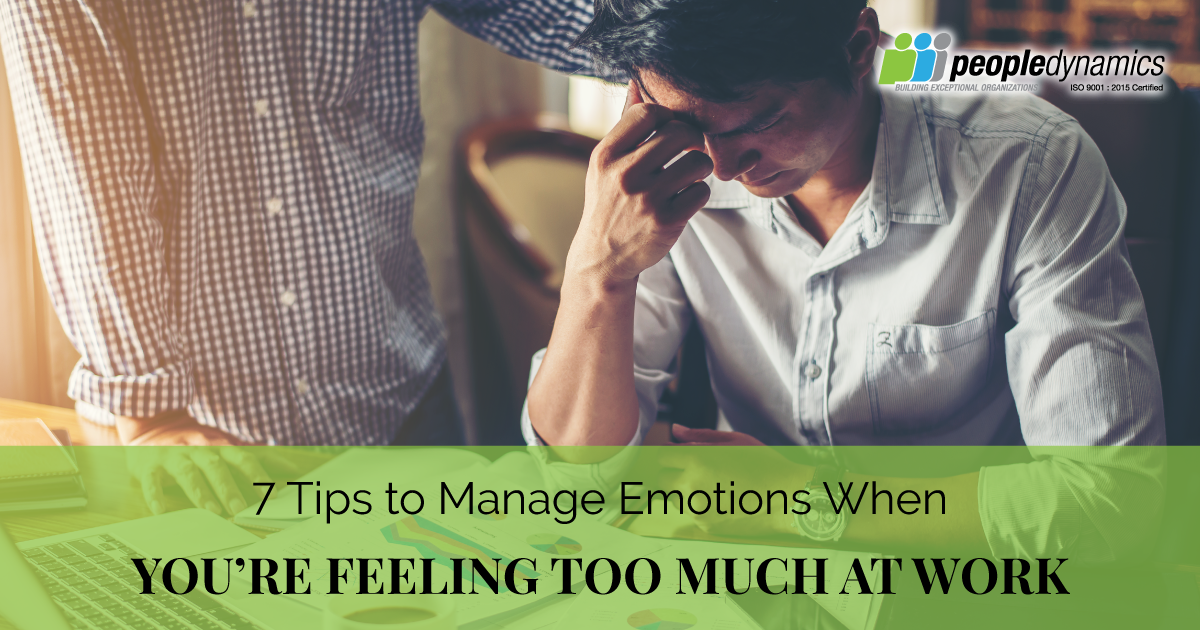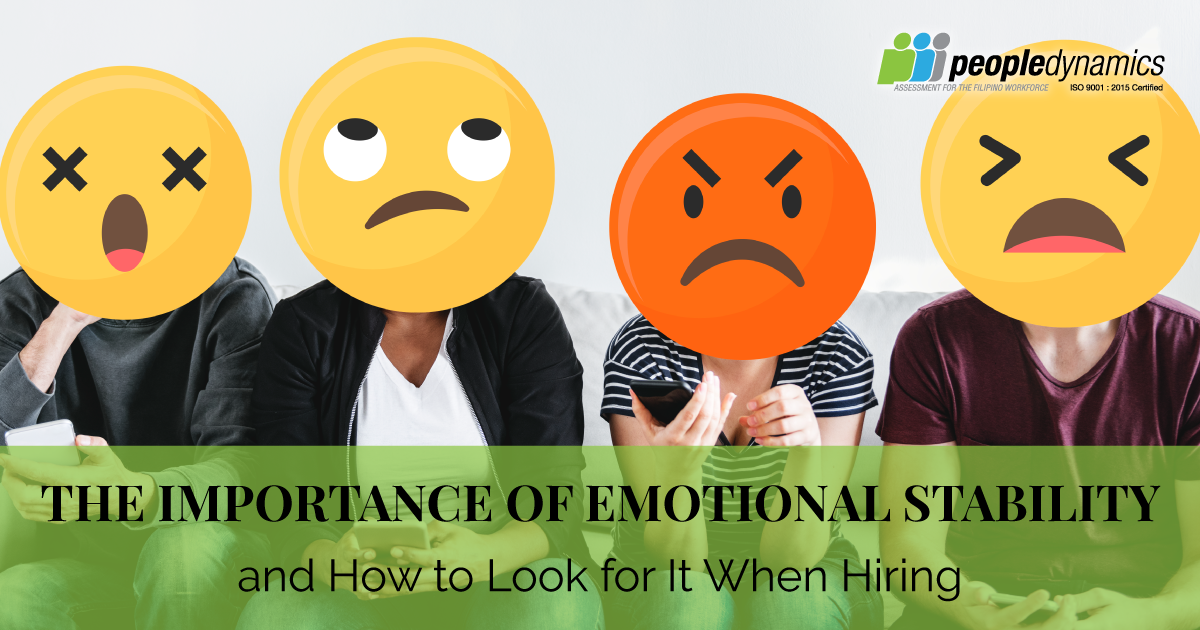Emotions are powerful. They can influence your thoughts, decisions, and behaviors. That’s why you must be emotionally stable. But did you know that to truly manage your emotions, emotional stability is just a part of a bigger competency? This competency is emotional intelligence, one of the top competencies you need this year and beyond to thrive in the fourth industrial revolution. So, how can you be more emotionally intelligent?
What is Emotional Intelligence?
Everyone has emotions. It’s part of being human. But, the way you handle your emotions determine if you’re emotionally intelligent or not. So, before you dive in to be more emotionally intelligent, do you know what is emotional intelligence? Emotional Intelligence, according to Genos International, one of Top Assessment and Evaluation Company in 2019 by the Training Industry, is a set of skills that help us better perceive, understand, and manage emotions in ourselves and others.
In the Genos Emotional Intelligence model, there are 6 core emotional intelligence competencies:
- Self-awareness — your awareness of your emotions and how it can impact your thoughts, behaviors, and decisions;
- Awareness of others — perceiving, understanding, and acknowledging the way others feel;
- Authenticity — how openly and effectively you express yourself;
- Emotional Reasoning — using the information from your or others’ emotions when making a decision;
- Self-management — managing your mood and emotions, time, and behavior, and continuously improving yourself; and lastly,
- Positive Influence — influencing the way others feel positively.
These skills will help you be more emotionally intelligent step by step.
How can you be more emotionally intelligent?
Now that you know what emotional intelligence is and the core competencies that make it up, how can you be more emotionally intelligent?
Be more self-aware
Self-awareness is the first step to emotional intelligence. Your journey starts with your understanding of yourself and your emotions. So how can you be more self-aware? In a previous blog entitled “Self-Awareness at Work: How to Become More Self-Aware“, we listed down 4 things you could do to become more self-aware, and in turn, be more emotionally intelligent:
- Take a personality test — personality assessments give you insights on who you are and your behaviors, your strengths and weaknesses, and even give guidance on how to tackle the challenges you face because of your personality.
- Ask for feedback — knowing yourself through the eyes of others can give you a new perspective and let you notice things that you usually don’t.
- Keep a journal — journals help you recall your day and analyze and reflect on your experiences and emotions.
- Practice mindfulness — being mindful helps you monitor and your feelings, not letting you get lost with the fast pace of life.
Practice Empathy
Remember that to be more emotionally intelligent, you should not only perceive, understand, and manage your emotions, but also others. This is where empathy comes in. Empathy is the capacity to relate to others’ thoughts, feelings, or experiences. This is different and deeper than sympathy, which is your ability to take part in someone else’s feelings. Empathy is best described by the idiom “in someone else’s shoes”.
To practice empathy, you have to always remember that it’s always about the other person, not you. You have to acknowledge that while listening to someone else, their thoughts, feelings, and perspective are valid. Take note though, that acknowledgment doesn’t equal agreement. Just because you think that what the other person’s view of the situation is valid doesn’t mean that you think they’re right. Put aside your viewpoint for the time being and actively listen. When you’re asked for an opinion, try to think of how the person you’re talking to should’ve done based on who they are, rather than what they should’ve done if they were you. A common warning sign that you’re viewing thinking of yourself in the situation is starting your statements with “If I were you…” or “Here’s what I would do/feel…”.
Bounce forward from adversities
Life is littered with adversities. It’s how you react and act to these challenges that determine if you’re going to be able to bounce forward. In times of uncertainty, a positive outlook is essential. To ensure that you survive and come out stronger when you’re going through something, focus less on complaining but on optimism. When you’re not drowning in the gloom and doom, you may be surprised at how much better the situation is and how many things you could do instead. Learn from your experiences, after all, it’s the most effective and expensive teacher.
Take Emotional Intelligence assessments
Take a step further on your journey to emotional intelligence by taking dedicated assessments for it. For example, Emovation, Inc., an affiliate of People Dynamics, Inc., is a distributor of Genos International’s Emotional Intelligence Assessments. These assessments can help you examine how well you demonstrate emotionally intelligent behaviors at work or emotionally intelligent leadership competencies. These assessments can also be used by your organization for employee development and even recruitment.
Being more emotionally intelligent can help you survive and thrive not just in times in crisis, but in the future. Develop your emotional intelligence with the tips and above. And if you have other tips, let us know!
For more information about the Genos Emotional Intelligence Assessments, get in touch with renovation through this link: https://emovation.ph/contact-us/ or email them at care@emovation.ph.




